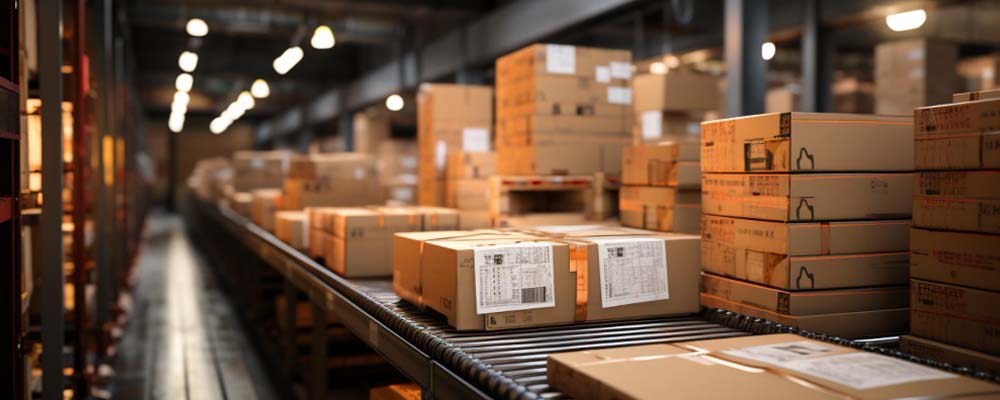
Portugal, strategically positioned as a gateway between Europe, Africa, and the Americas, is a key player in international trade, supported by a vibrant economy with a diverse export base and growing import market. Strong trade ties with the European Union dominate its exchanges, while significant relationships with Africa, the Americas, and Asia further enhance its global reach. With well-developed logistics infrastructure, including major ports like Lisbon, Porto, and Sines, Portugal serves as a crucial hub for global commerce, offering opportunities for freight forwarders, logistics providers, and other stakeholders to optimize supply chain operations and capitalize on its trade dynamics.
Main Exports of Portugal
Portugal’s export portfolio is characterized by high-value goods across various sectors, including automotive, textiles, and technology. Below are the country’s top exports:
1. Vehicles and Automotive Parts
- Value: Approximately €9 billion annually.
- Percentage of Total Exports: Around 15%.
- Key Export Destinations: Germany, Spain, France, and the UK.
- Insights: The automotive sector is a cornerstone of Portugal’s economy. The country specializes in producing passenger cars, commercial vehicles, and automotive components. Companies like Autoeuropa, a Volkswagen subsidiary, play a significant role in this sector.
2. Machinery and Equipment
- Value: Approximately €7.5 billion annually.
- Percentage of Total Exports: Around 13%.
- Key Export Destinations: EU countries, the United States, and China.
- Insights: Portugal’s machinery exports include industrial equipment, power generation machinery, and precision tools. The sector benefits from skilled labor and advanced manufacturing facilities.
 3. Textiles and Apparel
3. Textiles and Apparel
- Value: Approximately €5 billion annually.
- Percentage of Total Exports: Around 9%.
- Key Export Destinations: Spain, France, Germany, and Italy.
- Insights: Renowned for high-quality textiles, Portugal’s exports include clothing, home textiles, and technical fabrics. The country’s focus on sustainable and eco-friendly materials gives it a competitive edge.
4. Cork and Cork Products
- Value: Approximately €1.2 billion annually.
- Percentage of Total Exports: Around 2%.
- Key Export Destinations: United States, Germany, and France.
- Insights: Portugal is the world leader in cork production, supplying cork stoppers, flooring, and insulation products. The industry is deeply tied to Portugal’s natural resources and sustainability initiatives.
5. Agricultural Products and Wine
- Value: Approximately €3.5 billion annually.
- Percentage of Total Exports: Around 6%.
- Key Export Destinations: EU countries, the United States, and Brazil.
- Insights: Portugal’s agricultural exports include olive oil, fresh fruits, and vegetables. Portuguese wines, particularly Port and Vinho Verde, are globally renowned and contribute significantly to export revenues.
Main Imports of Portugal
Portugal relies on imports to meet its energy needs, support its manufacturing industries, and cater to consumer demand. Here are the country’s key imports:
 1. Crude Oil and Refined Petroleum
1. Crude Oil and Refined Petroleum
- Value: Approximately €10 billion annually.
- Percentage of Total Imports: Around 18%.
- Key Import Sources: Russia, Saudi Arabia, and the United States.
- Insights: As a net importer of energy, Portugal’s crude oil imports feed its refineries, while refined petroleum is critical for domestic consumption and exports.
2. Vehicles and Automotive Parts
- Value: Approximately €7 billion annually.
- Percentage of Total Imports: Around 12%.
- Key Import Sources: Germany, Spain, and France.
- Insights: Portugal imports vehicles and components to meet domestic demand and support its automotive manufacturing sector.
3. Machinery and Equipment
- Value: Approximately €6 billion annually.
- Percentage of Total Imports: Around 10%.
- Key Import Sources: Germany, China, and Italy.
- Insights: Industrial machinery, IT equipment, and renewable energy technologies dominate Portugal’s machinery imports, enabling the country’s industrial growth.
4. Pharmaceutical Products
- Value: Approximately €4 billion annually.
- Percentage of Total Imports: Around 7%.
- Key Import Sources: Germany, Switzerland, and the United States.
- Insights: Portugal’s pharmaceutical imports address domestic healthcare needs and support the country’s growing biotechnology sector.
 5. Food and Beverages
5. Food and Beverages
- Value: Approximately €3 billion annually.
- Percentage of Total Imports: Around 5%.
- Key Import Sources: Spain, France, and Brazil.
- Insights: Imported food products, including cereals, meat, and dairy, complement Portugal’s agricultural output, catering to both local consumption and re-export markets.
Trade Opportunities for Logistics Providers
Portugal’s trade dynamics present several opportunities for logistics providers and freight forwarding companies:
- Port Logistics:
Portugal’s ports handle a significant volume of trade. Ports like Sines, with its deep-water facilities, are ideal for transshipment and global trade routes. - Intermodal Transport:
Efficient rail and road networks connect Portuguese ports to inland Europe, offering opportunities for intermodal transport services. - Cold Chain Logistics:
With significant exports of perishable goods like fruits and wines, cold chain logistics is a growth area in Portugal. - E-commerce Growth:
The rise of e-commerce has increased demand for express shipping, last-mile delivery, and warehousing services.
Challenges in Portugal’s Trade
Despite its advantages, Portugal faces some trade-related challenges:
- Energy Dependence:
Heavy reliance on energy imports exposes the country to global price fluctuations. - Trade Deficit:
Portugal consistently runs a trade deficit, which can affect the balance of payments and economic stability. - Infrastructure Bottlenecks:
While ports are efficient, congestion and capacity issues can occasionally hinder trade flows.
Government Initiatives and Trade Agreements
Portugal’s government actively promotes trade through policies and international agreements:
- EU Membership:
As an EU member, Portugal benefits from free trade within the bloc and preferential access to global markets. - Bilateral Agreements:
Trade agreements with countries like Canada (CETA) and Japan provide Portuguese exporters with favorable market access. - Green Transition:
Investments in renewable energy and sustainable manufacturing align with global trade priorities.
- Invest in Sustainability:
Offer eco-friendly logistics solutions to align with Portugal’s green transition.
 Conclusion
Conclusion
Portugal’s trade profile reflects its rich industrial heritage and strategic global connections. By understanding the country’s main exports and imports, logistics providers, freight forwarders, importers, exporters, and other industry stakeholders can seize opportunities and navigate challenges effectively. Whether it’s optimizing supply chains, leveraging digital tools, or investing in green logistics, the future of trade in Portugal offers exciting prospects for businesses worldwide.




 3. Textiles and Apparel
3. Textiles and Apparel 1. Crude Oil and Refined Petroleum
1. Crude Oil and Refined Petroleum 5. Food and Beverages
5. Food and Beverages Conclusion
Conclusion



